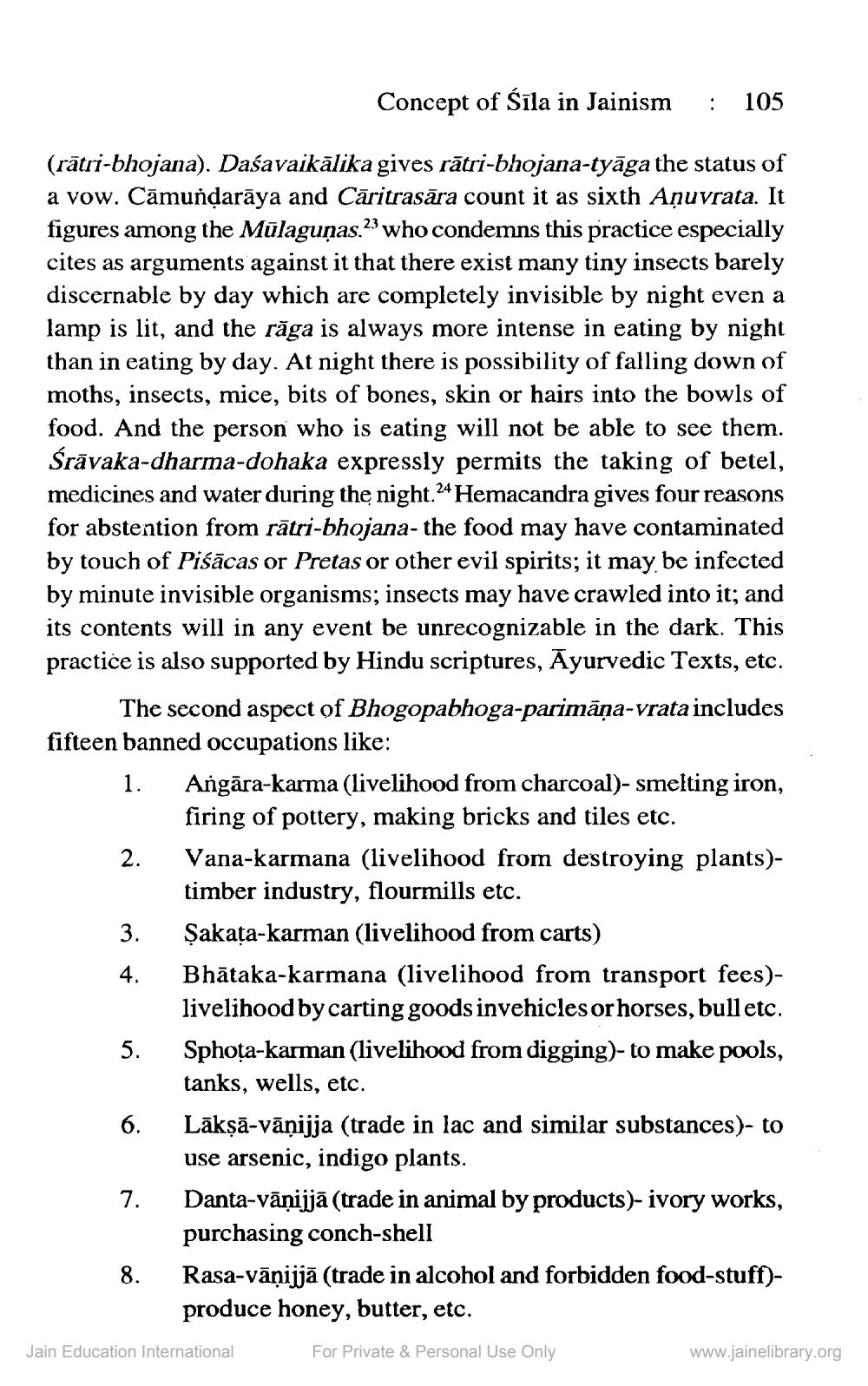________________
Concept of Śila in Jainism : 105
(rātri-bhojana). Daśavaikālika gives rātri-bhojana-tyāga the status of a vow. Camunḍarāya and Caritrasāra count it as sixth Aṇuvrata. It figures among the Mūlagunas.23 who condemns this practice especially cites as arguments against it that there exist many tiny insects barely discernable by day which are completely invisible by night even a lamp is lit, and the raga is always more intense in eating by night than in eating by day. At night there is possibility of falling down of moths, insects, mice, bits of bones, skin or hairs into the bowls of food. And the person who is eating will not be able to see them. Śrävaka-dharma-dohaka expressly permits the taking of betel, medicines and water during the night.24 Hemacandra gives four reasons for abstention from ratri-bhojana- the food may have contaminated by touch of Pisacas or Pretas or other evil spirits; it may be infected by minute invisible organisms; insects may have crawled into it; and its contents will in any event be unrecognizable in the dark. This practice is also supported by Hindu scriptures, Ayurvedic Texts, etc.
The second aspect of Bhogopabhoga-parimāṇa-vrata includes fifteen banned occupations like:
1.
2.
3.
4.
5.
6.
7.
8.
Angāra-karma (livelihood from charcoal)- smelting iron, firing of pottery, making bricks and tiles etc.
Vana-karmana (livelihood from destroying plants)timber industry, flourmills etc.
Şakata-karman (livelihood from carts)
Bhātaka-karmana (livelihood from transport fees)livelihood by carting goods invehicles or horses, bull etc. Sphota-karman (livelihood from digging)- to make pools, tanks, wells, etc.
Lākṣā-vāṇijja (trade in lac and similar substances)- to use arsenic, indigo plants.
Danta-vāņijjā (trade in animal by products)- ivory works, purchasing conch-shell
Rasa-vāņijjā (trade in alcohol and forbidden food-stuff)produce honey, butter, etc.
For Private & Personal Use Only
Jain Education International
www.jainelibrary.org




